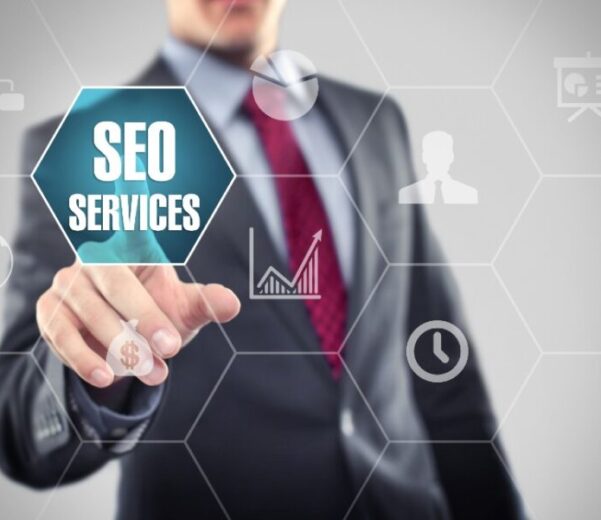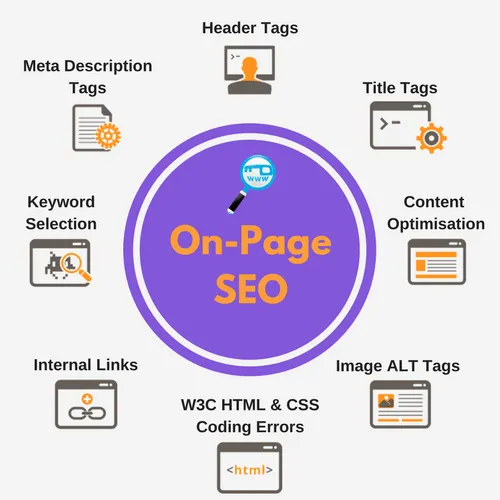Exploring the Most Common Digital Marketing Services
In today’s digital-centric world, businesses of all sizes are leveraging various online strategies to enhance their brand visibility, engage with their target audience, and drive conversions. Digital marketing encompasses a wide range of services designed to promote products or services through digital channels. From search engine optimization (SEO) to social media marketing, email marketing, and beyond, let’s explore some of the most common digital marketing services shaping the modern business landscape.

Search Engine Optimization (SEO):
Search Engine Optimization (SEO) is a fundamental aspect of digital marketing aimed at improving a website’s visibility in search engine results pages (SERPs). By optimizing on-page elements, such as keywords, meta tags, and content quality, as well as off-page factors like backlinks and domain authority, SEO helps websites rank higher for relevant search queries. The goal of SEO is to attract organic traffic and increase a site’s visibility, ultimately driving more qualified leads and conversions.
Social Media Marketing (SMM):
Using social media sites like Facebook, Instagram, Twitter, LinkedIn, and others to advertise goods and services, interact with customers, and increase brand recognition is known as social media marketing (SMM). SMM encompasses various strategies, including creating and sharing engaging content, running targeted ad campaigns, interacting with followers, and analyzing performance metrics. Social media platforms offer businesses a powerful channel to connect with their target demographic, foster relationships, and drive traffic to their website or landing pages. Must Read: Is It Possible to Generate Huge Business with SEO Services?
Content Marketing:
The goal of content marketing is to draw in and hold on to a certain audience by producing and disseminating informative, timely, and well-written material. Content can take many forms, including blog posts, articles, videos, infographics, podcasts, eBooks, and more. The goal of content marketing is to educate, entertain, or inspire audiences while subtly promoting a brand’s products or services. By providing valuable information and addressing the needs of their target audience, businesses can establish authority, build trust, and drive engagement over time.
Email Marketing:
Email Marketing involves sending targeted messages to a list of subscribers with the aim of promoting products, services, or special offers. Email remains one of the most effective channels for nurturing leads, retaining customers, and driving conversions. Email marketing campaigns can include newsletters, promotional emails, product announcements, personalized recommendations, and more. With advanced segmentation, automation, and tracking capabilities, businesses can tailor their email marketing efforts to specific audience segments and measure their performance with precision.
Pay-Per-Click Advertising (PPC):
Pay-per-click advertising (PPC) is a model of online advertising where advertisers pay a fee each time their ad is clicked. PPC platforms, such as Google Ads and Bing Ads, allow businesses to bid on keywords relevant to their products or services and display ads in search engine results or on other websites. PPC offers immediate visibility and targeted reach, making it an effective way to drive traffic, generate leads, and increase sales. With proper keyword research, ad copy optimization, and campaign management, businesses can maximize their ROI with PPC advertising.
Influencer Marketing:
Influencer Marketing involves collaborating with influential individuals or personalities on social media to promote products or services to their followers. Influencers, who have established credibility and a large following in a particular niche, can help businesses reach a wider audience and drive engagement through authentic endorsements and recommendations. Influencer marketing campaigns can take various forms, including sponsored posts, product reviews, giveaways, and brand partnerships. By leveraging the trust and influence of relevant influencers, businesses can amplify their brand message and connect with consumers in meaningful ways.
Analytics and Data Analysis:
Analytics and Data Analysis play a crucial role in digital marketing by providing insights into the performance of campaigns, user behaviour, and overall marketing effectiveness. By tracking key metrics such as website traffic, engagement, conversion rates, and customer acquisition costs, businesses can make informed decisions, optimize their strategies, and allocate resources more effectively. Advanced analytics tools, such as Google Analytics, provide actionable data that helps businesses understand their audience, identify trends, and measure the ROI of their digital marketing efforts.
Conclusion On Common Digital Marketing Services:
In conclusion, the landscape of digital marketing services is vast and ever-evolving, encompassing a diverse range of services and strategies aimed at helping businesses achieve their marketing objectives in the online realm. From search engine optimization and social media marketing to content marketing, email marketing, PPC advertising, influencer marketing, and analytics, each service plays a unique role in driving brand awareness, engagement, and conversions. By leveraging the power of digital marketing, businesses can reach their target audience, stand out in a crowded marketplace, and drive sustainable growth in today’s competitive digital landscape.






